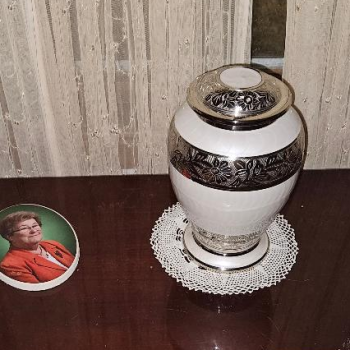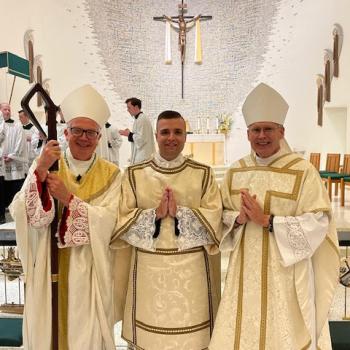This opening of the dossiers might sound horrible—un-charitable, un-Christian. Objectively, it might be all those things. But for me, it succeeded where enforced nostalgia and distributist economic theory failed: it made the Catholic ideal of the medieval village, tangible. In those dark days, gossip was a force for order. When Innocent III sat on his throne, it was the Lauras of Europe who were crowning the lintels of cuckolds with antlers and splashing the doorsteps of adulterers with animal blood. They determined which Theobalds should be called "the bald," and which Pepins "the peppy." They were the illiterate forerunners of the Fourth Estate.
In Laura's view, no person could possibly be an island. She joined the unlikeliest people into endless narrative daisy chains. This person, who had suffered a nervous breakdown on her way to some retreat, had lived down the street from that person, whose husband was a maniac. She, in turn, had pursued the priest at X parish, without success. The idea that all Catholics formed the Body of Christ seemed less real, and somehow less satisfying, than the idea that they were joined by six degrees of Laura.
When Dan went into the hospital, I learned that Laura's interconnections amounted to more than a mnemonic device. In what must surely qualify as the nearest Catholic equivalent to a barn-raising, Laura called in favors from three dozen acquaintances across five parishes. The young and marriageable tidied up the yard. A boy Laura had pegged as a future priest hauled off heaps of newspapers and magazines in his pickup, and came back asking why the models in the Playboys had tan lines. With the force of her personality, she had made the community that existed in her head into something concrete and functional.
Dan came home from the hospital on schedule, but died several months later, as Laura had often said he would. By that time, I'd left the parish, so I can't say whether Laura was at his bedside, but I wouldn't be surprised if she were. I hesitate to say she enjoyed death, but she collected memories of good ends and good send-offs, and often claimed the right to choose the readings at friends' funerals the way a distant relative might claim a Meissen vase. Here, again, Laura seemed a throwback to 13th-century Normandy. She'd have been one of those retainers who scrubbed the arrow wounds in Messire's body before the monks hauled it off to the crypt.
In The Cloister Walk, her book of meditations on Benedictine monasticism, Kathleen Norris touches on the same basic theme—how shared folklore creates a sense of community that endures beyond the grave. But maybe because she had the good luck to land amid an extraordinarily mature group of religious, her account seems somehow sanitized, if not saccharine. Community-according-to-Laura, where relationships take root in frail flesh, and are nourished by gouts of bad blood, tallies better with my experience of our species. There's something about knowing an awful story about the person beside you, and suspecting that he knows one about you, that creates the incentive to work together, trimming ivy off a hoarder's house, in a comfortable silence.





